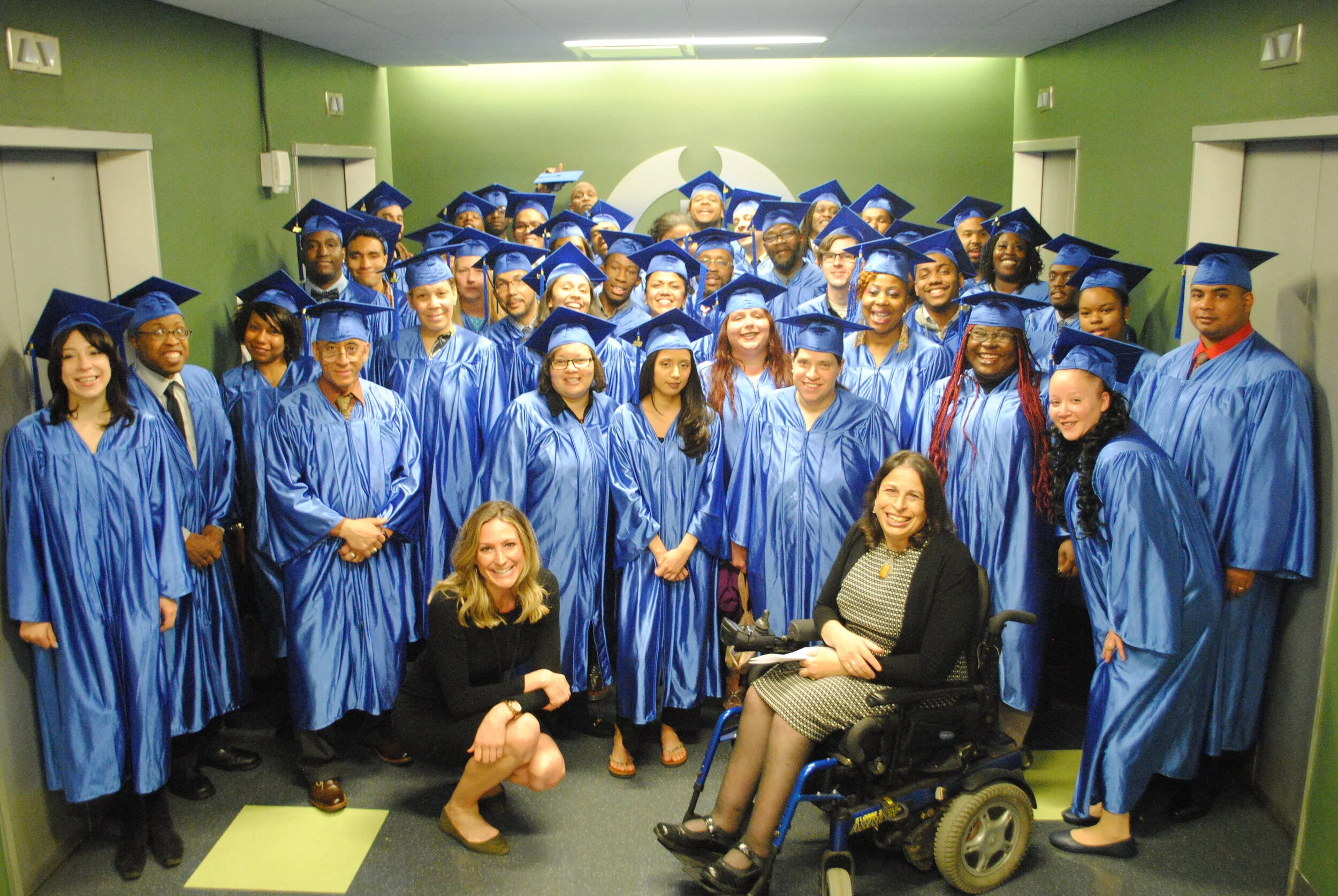Nonprofit Talk: Institute for Career Development fuels employment during COVID crisis
/Susan Scheer (in the foreground, on the right) at a graduation celebration at ICD in 2018. Photo courtesy of Institute for Career Development
By Susan Scheer, as told to the Eagle
Susan Scheer is CEO of the Institute for Career Development (ICD), a non-profit organization whose mission is to help New York City adults and youth transform their lives through career development and employment. Founded in 1917, ICD serves veterans and individuals with disabilities facing barriers to employment. It provides vocational planning, training programs, internships, and job placement services. Approximately 20% of ICD’s participants are Queens residents, and ICD has assisted almost 600 Queens residents since 2017.
We are now about nine months since the pandemic essentially shut down most of New York City. How has your organization adapted during this time?
Our programming is normally in-person, so in response to the COVID-19 pandemic we had to shift quickly to remote operations. We transitioned our teaching to a virtual platform and obtained philanthropic funding so that our participants could access the technology needed to engage in online programming. On August 10th, we reopened our doors for socially distanced, in-person services, and we now serve participants through a hybrid model of online and in-person services. Social distancing limits our in-person capacity, however, so we carefully balance those activities that have to be conducted in person with those that do not.
How are you balancing the needs of your clients with the level of risk to your employees?
We rigorously comply with all best practices in public health to ensure the safety of our participants and employees during in-person training. We also consider whether specific types of training can be conducted well online or should be done in person. We assess, too, the needs of individual participants and whether they are best addressed in person or online. Just as some training is better conducted in person, some individuals thrive in the online environment, while others benefit more in person. The resulting mix of in-person and online training is highly personalized – with everyone’s safety always the top priority.
How have you adjusted to serve your program participants?
With more than 12 million Americans unemployed amid the pandemic, the job market is especially tight. That makes this an important time for people who are looking for work or for better jobs to add new skills. We have, therefore, prioritized maintaining our staff to offer that assistance. Our Work Readiness Training, for instance, provides soft skills, digital literacy, and employment readiness competencies. Our training programs allow participants to gain industry credentials in a range of fields. Of the 15 students who graduated from our IT Academy in August, 11 have already passed the certification exam, including two Deaf students.
What, if any, new services or programs have you launched in response to the pandemic?
As part of our pandemic response, we partnered with the Robin Hood Relief Fund to disperse direct cash support to our participants. The recipients reported using the funds for essentials such as buying groceries, paying rent and other bills, securing transportation, and paying health expenses. In addition, given the stress of the pandemic, our staff hosted a weekly online check-in via Zoom that we call ICD’s Power Hour. It reinforced our culture of support for our staff and participants, providing a designated time and space to connect with each other, share experiences and struggles, and ultimately gain hope and strength.
What is next for your organization?
ICD is at the forefront of ensuring that people with disabilities are included in the reshaping of the economy. Digital skills are incorporated into our trainings, and we work closely with many industries to ensure that our trainings reflect the latest industry needs. Our IT Academy, for instance, helps students get credentialed in areas of greatest demand and connected to employment opportunities in technology. We also work to shape the employment environment through research reports, the latest of which is “Opportunities for Pathways & Collaborations: Creating a Pipeline of Individuals with Disabilities for Employment in the Technology Sector.”
What types of support do you most need now?
The need for our services is greater than ever, as COVID-19 subjects more and more New Yorkers to long-term effects, including new disabilities and job loss. Our government contracts do not cover all our costs, and we rely on individual contributions to make up the difference. Donations can be made to www.icdnyc.org to help us create new digital pathways to career success for veterans and people with disabilities.
Learn more about ICD at www.icdnyc.org.




